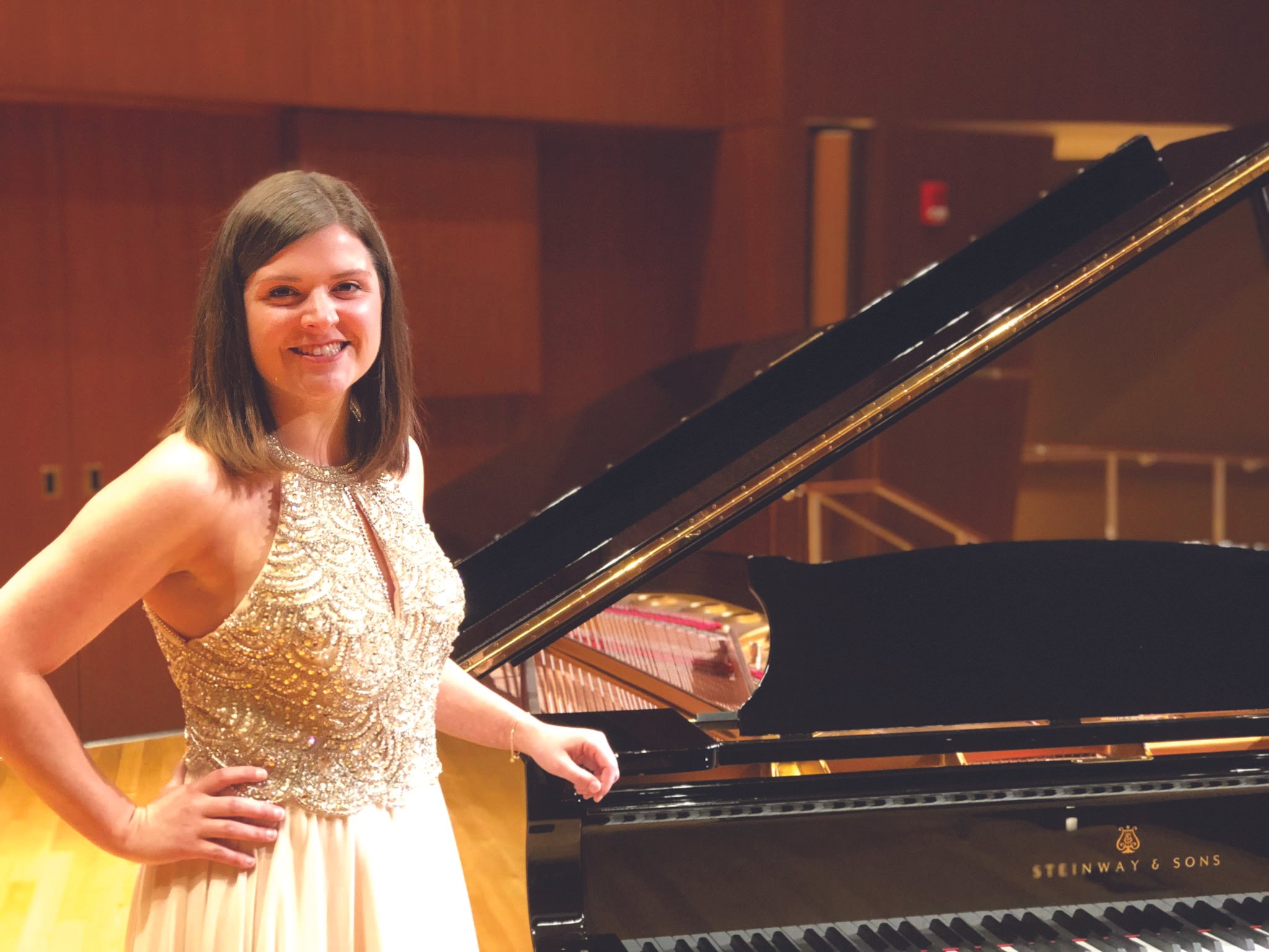By Shelby Smoak
While she may be a bit too shy to take the stage with her musical talent, Elizabeth VanSant is not shy to bring music therapy to people’s doorstep.
Along with the rigorous demands of a college degree, Elizabeth recently finished her B.M. in Music Therapy at University of Kansas with over 1,200 clinical hours completed. She pulled up her mid-western roots and struck out for the rainy marine climate of Seattle where she has already started working.
“I’ve actually gotten three music-related jobs since moving to Seattle six weeks ago,” Elizabeth explained. One of the jobs includes working with special needs children and young adults, holding weekly social groups and using music to improve their social skills. Another job includes working with infants and toddlers as a music specialist. And a final job offer is so new she is still awaiting details. Certainly, it’s an exciting time for this twenty-something college grad.
Elizabeth’s passion for music started with dance, but the perils of having hemophilia B soon took away that opportunity. “From all the ballet, tap and jazz I was doing,” she says, “I got a stress fracture in my left ankle and was unable to continue dancing.” Enter then the piano, which she has now been playing since third grade. Along the way she has learned flute, guitar and a variety of percussion instruments. She also loves to sing. All these things are made obvious when watching Elizabeth play: she can fluidly sight read music without missing a note and can match the vocal with near pitch-perfection on any song.
After high school Elizabeth sought an avenue to have a career in music and began studying music therapy. She shares, “I immediately connected with it because I realized that I had used playing piano to express my emotions when learning how to self-infuse. I thought to myself, if I can help people with music in the same way that it helped me, I would be incredibly happy.”
Music therapy however, isn’t just listening or playing music. “While listening to music when you’re having a bleed or are not feeling well is therapeutic, it is not music therapy,” Elizabeth says.
Music therapy is working with a trained professional and using music as an intervention tool to accomplish a specific goal for healing or personal development. All persons receiving degrees in Music Therapy must attend an approved university and, before they can practice, must be board certified by The American Music Therapy Association.
The American Music Therapy Association’s website details several of the therapeutic advantages that music therapy can provide: alleviating pain, enhancing memory, managing stress, promoting physical rehabilitation and others. Therapy is also proven in treating conditions such as Alzheimer’s, autism, pain management, mental health issues and PTSD. Moreover, music therapy can be covered by certain insurances: Medicare under their Partial Hospitalization Program (PHP); Medicaid in certain states; and private insurers like Blue Cross Blue Shield, Aetna and Cigna.
Elizabeth’s own struggles with hemophilia, she says, likely pushed her into music therapy. Because of her bleeding disorder, she gravitated toward playing more guitar and piano as she was growing up. “It was a release for my anxiety,” she says, adding “and playing piano and guitar certainly helps veins grow right before infusing.”
Now, hemophilia is only sometimes limiting: “One of my target areas is my right shoulder muscle, so sometimes it can be difficult to play guitar, which is the easiest way for me to accompany myself during music therapy sessions.” But that isn’t stopping her. “Thankfully, this hasn’t happened in a while, but it’s something to always be mindful of.”
In closing, Elizabeth advocates for persons to incorporate music in their lives. “Music can help you be more self-aware,” she says, “and it can be an excellent way to express, and even redirect, your emotions.”
In addition to her work in Seattle, Elizabeth takes her passion on the road, running Music Therapy workshops at various hemophilia events and sometimes overcoming her shyness for a few cameo appearances in The Bleeders, a hemophilia-inspired cover band.
More information on Music Therapy can be found at The American Music Therapy Association’s website: https://www.musictherapy.org/






